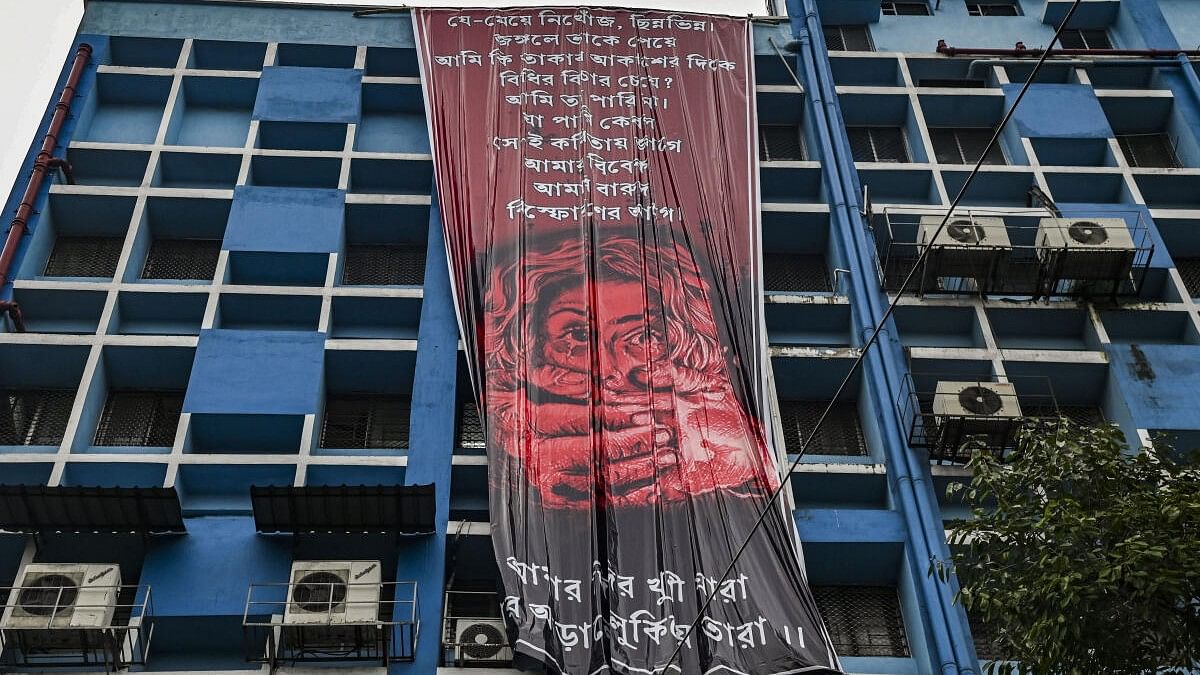
A view of Kolkata's R G Kar College and Hospital that has been in the eye of storm since the rape and murder of a medic.
Credit: PTI Photo
New Delhi: From lack of adequate duty rooms and resting spaces for doctors and nurses and very few toilets, to poorly lit hospital campus, absence of proper security and surveillance systems and people’s unrestricted access – the Supreme Court on Tuesday flagged the ground realities that doctors in government hospitals deal with every day.
The top court, while hearing a suo motu case on the gruesome rape and murder of a female resident doctor at RG Kar Medical College in Kolkata, also asked a national task force to look into specific areas related to security and infrastructure development to make life easier for healthcare workers manning the hospitals.
“Medical professionals who are posted for night-duties are not provided adequate resting spaces. More often, doctors rest in the patients’ room or in available public spaces. Duty rooms are scant. Separate duty rooms for male and female medical professionals are conspicuous by their absence in most health care establishments,” the SC said in an order.
Interns, residents and senior residents are made to perform 36 hour shifts in conditions where even basic needs of sanitation, nutrition, hygiene and rest are lacking. “Medical care facilities do not have sufficient toilets. Most often there is only one common toilet for medical professionals in one department,” it added.
A bench of Chief Justice DY Chandrachud and Justices J B Pardiwala and Manoj Mishra noted lack of security as “more of a norm” because of which “medical professionals, which includes young resident doctors, interns and nurses are left to handle unruly attenders.”
Lack of transportation for interns, resident doctors and nurses from their hostels or quarters to the hospital is yet another lacuna flagged by the bench. The judges asked the national task force to ensure transport provision between 10 pm to 6 am to those who wish to travel to or from their place of stay to the hospital.
The bench also noted the absence or lack of CCTV to monitor the entry and exit gates and control access to sensitive areas besides lack of screening for arms and weapons and ill-lit places within a hospital.
To ensure proper security, the bench advised triaging the departments and places within the hospital based on the degree of volatility and the possibility of violence.
“Areas such as the emergency rooms and the Intensive Care Units are prone to a greater degree of violence and may possibly need additional security in place to deal with any untoward incident,” the SC order said.
